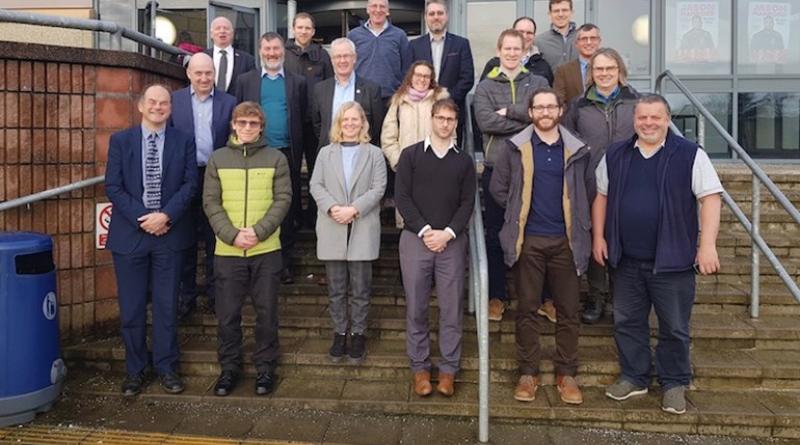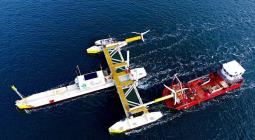Orkney pilots 'smart' island thinking.

The first phase of a new £28.5m project has been launched to create a virtual energy system in Orkney, Scotland, to digitally link distributed and intermittent renewable generation to flexible demand.
The , – project will be a first-of-its-kind virtual energy system interlinking local electricity, transport and heat networks into one controllable, overarching system.
ReFlex is led by the European Marine Energy Centre (EMEC) and also includes Solo Energy, Aquatera, Community Energy Scotland, Heriot-Watt University, Orkney Islands Council and Doosan Babcock.
EMEC said the aim is to create a ‘smart energy island’, demonstrating an energy system of the future.
Funding for the project comes from UK Research and Innovation through the Industrial Strategy Challenge Fund.
The project couples electricity, transport and heat powered by local renewables generation with flexible energy demand balancing the intermittency of the clean power.
ReFlex aims to deploy up to 500 domestic batteries, about 100 business and large-scale batteries, up to 200 vehicle-to-grid chargers and 600 new electrical vehicles.
An island community-powered electric bus and e-bike integrated transport system, flexible heating systems and a Doosan industrial-scale hydrogen fuel cell are also part of the plans.
Solo Energy will implement its FlexiGrid software platform to enable smart monitoring and control of the technologies to charge during periods of peak local renewable generation, and release stored energy during times of peak demand.
Once demonstrated and proven in Orkney, it is expected that the model and associated integrated energy service supply framework will be replicated in other areas across the UK and internationally, EMEC said.
UK Energy and Clean Growth Minister Claire Perry said: “What we are seeing here on Orkney is a test bed for the energy system of the future.
“These smart systems are a key part of our modern Industrial Strategy and will provide cheaper, greener and more flexible access to energy for everyone.
“What we learn from these innovations could one day be rolled out across the UK and exported around the world and we’ll be able to say it was ‘Made in Orkney’.”
EMEC managing director Neil Kermode said: “We’re delighted that UKRI have funded this project. This new model will demonstrate how we can better interact with, own and manage our integrated energy systems locally, both at individual and community level.
“50% of the project is being funded privately indicating the appetite that exists within the partners to make this project work.
“Orkney has already demonstrated high commitment for local sustainable energy solutions and the county is well on its way to decarbonising each aspect of the energy system.
“The target for Orkney is to have a negative carbon footprint and this pioneering project will build upon the existing local energy system, local infrastructure and local expertise, to accelerate this transition to a fully sustainable and flexible energy system.”
The project was one of four smart energy systems demonstrators announced today by Energy and Clean Growth Minister Claire Perry.
The others are the Pivot Power-led Energy Superhub in Oxford, Scottish and Southern Electricity Networks-led Project Leo (Local Energy Oxfordshire) and Smart Hub SLES in West Sussex led by Cloud Infinity Projects.
Other organisations involved in the Energy Superhub are Habitat Energy, Kensa, Oxford City Council, RedT Energy and the University of Oxford.
The superhub will be the world’s first transmission-connected lithium ion and redox-flow hybrid battery and include a network of 320 ground source heat pumps, targeting social housing premises.
Project Leo also includes EDF Energy, Nuuve, Open Utility, Origami Energy, Oxford Brookes University, Oxford City Council, Oxfordshire County Council, The Low Carbon Hub CIC and Oxford University.
A local energy marketplace will be created that will enable virtual aggregation of loads and dispatch flexibility across a range of projects.
Smart Hub SLES integrates energy management across council housing, private residential properties, transport infrastructure and commercial properties.
It will include a variety of technologies including a hybrid hydrogen/electric vehicle filling station and virtual power plant.
3 April 2019
![]()



